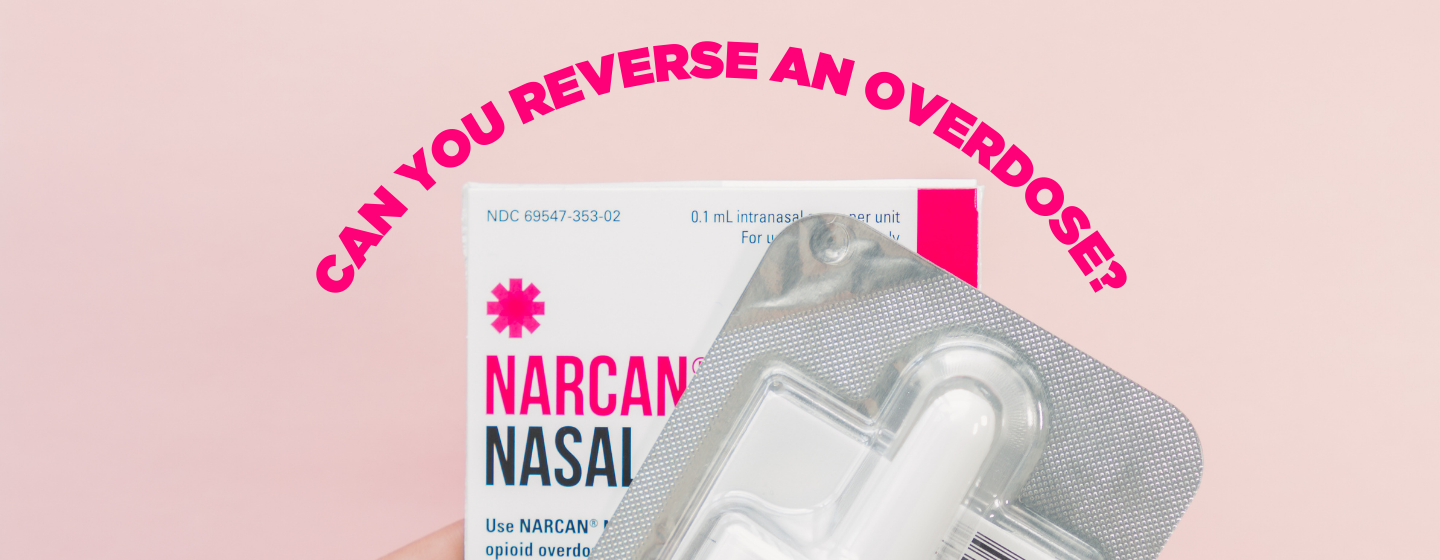Can You Reverse an Overdose?

Dan Clark: Beginning this week, New York's public media stations are launching a statewide effort to share information about overdose prevention, harm reduction and other resources for those struggling with drug use. Before the pandemic, the number of people who died from an overdose was starting to go down, or at least stayed flat for a few years, but when COVID hit that changed. Fentanyl, a painkiller, entered the illicit drug market and because it's so strong and because sometimes people don't even know it's mixed in with their drugs it started to be a top contributor to overdose deaths, according to the state. That's why everyday people like you and like me are now getting trained on how to use naloxone, also called Narcan.
Those are drugs that can actually reverse an overdose from painkiller drugs like heroin or fentanyl and save someone's life. That's why a lot of pharmacies now carry Narcan for you to buy without a prescription, but there are also community programs that work to prevent overdoses and respond if they happen. One of those programs is Project Safe Point in Albany, which actually holds trainings on how to use Narcan.
We show you more in this piece from WMHT’s Will Pedigo.
Ed Fox: Project Safe Point is a public health program that provides harm reduction services to the capital district. Our service area is 12 counties surrounding the capital region. It's a big area to serve with a lot of different needs and a lot of different ways to deliver services.
We do Narcan trainings in the community and we will do a Narcan training in the middle of the street, in a jailhouse, in a treatment center, in someone's home. Anywhere there are opiates, there also needs to be Narcan. I don't want to walk out that door until everyone in the room is comfortable using Narcan. That's like the number one point.
I like to say that when you're doing a Narcan training, it's a conversation as much as anything else because we're always wanting to hear your feedback and people's questions.
When we talk about just your overdose crisis, we've seen over the years, I think everyone has been impacted in some way. Everyone knows someone who's been affected by this.
We see how communities are impacted and how individuals are impacted, how families are impacted. Fentanyl is in everything. Being such a powerful opiate itself, it’s super, super dangerous. It's 15 to 20 times strong and heroin is 80 to 100 times stronger than morphine. It's out there, it's cheap, it's available, it's everywhere.
Our approach as a harm reduction agency, a harm reduction program, is to actually have you tell me what you need today, what will work for you today, and taking that approach for whatever service is needed, when the service is needed. No judgment ever.
Our syringe exchange program is a really, really important program. It's a baseline program for us and it's very important that people are safe because we are about disease prevention, HIV and Hepatitis C prevention.
We have low access, buprenorphine. That's a very important service for individuals because when someone's ready for change and being able to do that quickly is extremely important because the
moment may not last, but when the moment comes, being able to react to that is really important. We are making sure that they're in a safe place and that when they're ready for that change, then we're there to support that.
Alexis Weeks: Eight years ago, was the last time I used heroin.
Sometimes it takes addicts, multiple rehabs, and multiple tries for them to actually get it, for the recovery to stick. A lot of addicts don't even get that chance.
Narcan has saved my life, I've saved two boyfriends lives with Narcan, I've saved a few other people's lives.
I've been doing this for ten years, since before I was even old enough to drink. I was 19 when I started this process. I'm 29 now, and I think, and I hope, and I pray, and thank god that I have had this many tries because a lot of people haven't, but that because I get up and try again and try again, that it will stick.
Where I am in my journey, even sober, it's safe to always have Narcan in my car because I think it's safe to say that everybody's been affected by this opiate epidemic. Instead of turning a blind eye to what's going on, let's get together and be safe. Go to the Narcan trainings and carry the Narcan in our glove box because what if you pull up in a parking lot and you see somebody passed out? Chances are these days they're not sleeping anymore. Chances are they're probably overdose in that car and if you knock on that window and they don't wake up, you need to open that door and you need to give them Narcan and call 911, because chances are you could save their life.
DC: If you or someone you know is struggling with drug use, resources are available.
Watch the Interview
Certain drugs are used to reverse an overdose from using opioids.


